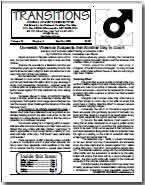Today is a very important day for all victims of domestic violence. Today marks the coming of age of the male domestic violence sector in the UK says Glen Poole of equality4men.
The MARS Conference Centre in Slough may seem like an unlikely place for a revolution brothers (and sisters), but that’s where dozens of men and women will be gathering today for the Second National Conference on Male Victims of domestic abuse, hosted by the charity The ManKind Initiative.
For those unfamiliar with the politics of the domestic violence sector let’s give you a bit of background. There is a global movement working to tackle the problem of domestic violence from a feminist perspective that is held together by the United Nations, the European Union and the public and charity sector at a national and local level.
This isn’t some crazy conspiracy theory, it’s just a boring strategic fact that the way we tackle domestic violence in Slough (or any other equally exciting UK town) is dictated by a series of overlapping global, continental, national and local strategies to end violence against women and girls.
Did you notice the potential flaw there?
That’s right, the domestic violence that happens in your neighbourhood is tackled as an issue of violence against women—so what about the men?
According to Nicola Graham-Kevan from the University of Central Lancashire, research spanning over 40 years has consistently found that men represent a substantial proportion of violence victims who are assaulted, injured or killed by an intimate partner (50%, 30% and 25% respectively).
And yet only 7% of those who are convicted for the crime are women.
Earlier this year a groundbreaking report by AMIS (Abused Men In Scotland) highlighted he problem with the current “public story” about domestic violence which “locates the phenomenon inside heterosexual relationships within a gendered victim/perpetrator dynamic (the stronger/bigger man controlling the weaker/smaller woman)”. That public story, says the report, is “the result of feminist activism and scholarship over several decades” and is both “a story of success and a story of exclusion”.
It’s a story of success because feminism and the women’s refuge movement has been hugely successful at dragging domestic violence out of the private sphere and into the public domain and it is a story of exclusion because male victims and victims in same-sex relationships have been consistently left out of the picture
And this is why advocates for male victims of domestic violence are often found at loggerheads with feminists, because as well as being creators of the “public story” about domestic violence, feminists are also the defenders of that “public story”—and so anyone highlighting female perpetrators or male victims is too often seen as a fellow anti-violence campaigner, but as a dangerous enemy of feminism.
Martyn Sullivan, the CEO of Mankind Counselling highlighted a similar issue in the feminist rape crisis sector. In his 2010-2011 report on male victims of rape and sexual abuse, Sullivan highlights the fact that feminism brought male victims to light as they began contacting women’s rape crisis centres for help. However, “the emergence of the male victim and the rising reports of female perpetrators” has also challenged the core beliefs of feminist theory, he says.
And so it is that the unfortunate male victim, rather than simply being a bloke who needs a bit of help because his wife stabbed him in an argument or his mum sexually abused him as a kid, is a threat to the very existence of feminism.
And when people’s existence is threatened things can turn pretty nasty as Erin Pizzey, patron of The ManKind Initiative discovered through bitter experience. Pizzey’s story is an extraordinary tale that is reportedly being turned into a film produced by Kate Beckinsale. Pizzey set up one of the world’s first refuges in West London in the early 1970s and was subsequently driven out of Britain by angry feminists for pointing out that women could be perpetrators and men could be victims.
“To concentrate only on women as victims is to deny the fact that children are also abused by their mothers. We can no longer afford to cover up the huge scandal that has existed for the last forty years where only men have been held up as perpetrators of all violence.”
When you start to add all this up together, it helps to explain why such a thing as an anti-feminist movement exists. To the modern, liberal mindset being anti-feminist can sound like being anti-gay-rights or anti-racial-equality. It isn’t. What anti-feminism attempts to do is oppose the aspects of feminism that are anti-men. Erin Pizzey talks of being picketed by feminist protestors carrying placards that read “ALL MEN ARE RAPISTS” and “ALL MEN ARE BATTERERS”. In simplistic terms, anti-feminists can tend to think that “ALL FEMINISTS HATE MEN”.
Polls suggest that fewer than 10% of people are anti-feminist and so the chances are that around 9 out of 10 male victims of domestic violence are NOT anti-feminist. They probably have no interest in attacking feminism and are probably completely unaware of how their very existence as a male victim poses a serious threat to the core beliefs of feminist theory.
And yet male victims are at the heart of a gender political battle that is starting to unravel. Angry people with simplistic messages like “ALL MEN ARE RAPISTS” of “ALL FEMINISTS HATE MEN” cannot solve complex problems like domestic violence. Nor can a singular approach like feminism or psychiatry hope to tackle the problem all on its own.
There has been a slow, uncomfortable shift taking place in the domestic violence sector over the past decade or so which is the acceptance that men can be victims—and there’s a parallel shift that’s taking place that’s even more significant and that’s the gradual realization that non-feminists can tackle domestic violence too.
In fact, not only can non-feminists tackle domestic violence. Non-feminists MUST get involved in tackling domestic violence, because it’s far too big and important a problem to be left to the extremes of feminism and anti-feminism to fight over.
Today’s conference is a big step in the right direction as it brings together some of the leading non-feminist advocates for male victims of domestic violence. And the conference is diverse with people like Frederico Podeschi of Broken Rainbow, the national domestic violence helpline for lesbian, gay, bisexual and trans people and Delia Donovan and Alan Gibson of Berkshire East and South Bucks Women’s Aid involved.
What’s happening at the MARS centre in Slough today is part of a gradual shift away from the feminist monopoly on tackling domestic violence to a more inclusive approach. This is uncomfortable for the feminist movement that currently dominates and controls the domestic violence sector—but then equality, diversity and inclusivity are often comfortable for those in positions of power and privilege.
In future there will be a wide, wide range of people involved in ending domestic violence, not just feminists helping women. As we saw with the tragic case of four-year-old Hamzah Khan who was starved to death by his mother, the “women HAVE problems, men ARE problems” approach to domestic violence is flawed and limited and we need a new “public story” to help us tackle this problem.
As Mark Brooks, chair of The Mankind Initiative said after hosting the inaugural conference for male victims of violence last February:
“There is now a receptiveness to the problems that men and boys face and there is now a recognisable men and boys sector in the UK – something even two years was barely discernable. It is vital this momentum continues apace – we cannot moan about the lack of support for men and boys, unless men and women, crack on and do something responsibly about it.”
Sector conferences rarely make waves in the mainstream media but we hear that BBC Radio 4′s Woman’s Hour is covering the issue of male victims today as a result of the conference. It seems inevitable that feminism will continue to be the dominant force in the domestic violence sector for some time and yet the steady, gradual and dogged growth of non-feminists working in this field—-particularly those working with men—will ultimately be good news for all victims of domestic violence.
We wish everyone at today’s Second National Conference on Male Victims of Domestic Violence the best of luck.
At equality4men we are developing a campaign to #EndViolenceAgainstMen&Boys, at this stage if you want to express an interest in supporting such a campaign then please send us your name via the #EndViolenceAgainstMen&Boys page.
The issue of male victims of violence is covered in our Equality For Men eBook by Glen Poole, if you want to be notified about the publication of this book you can register your interest at our Buy The Book page now.



